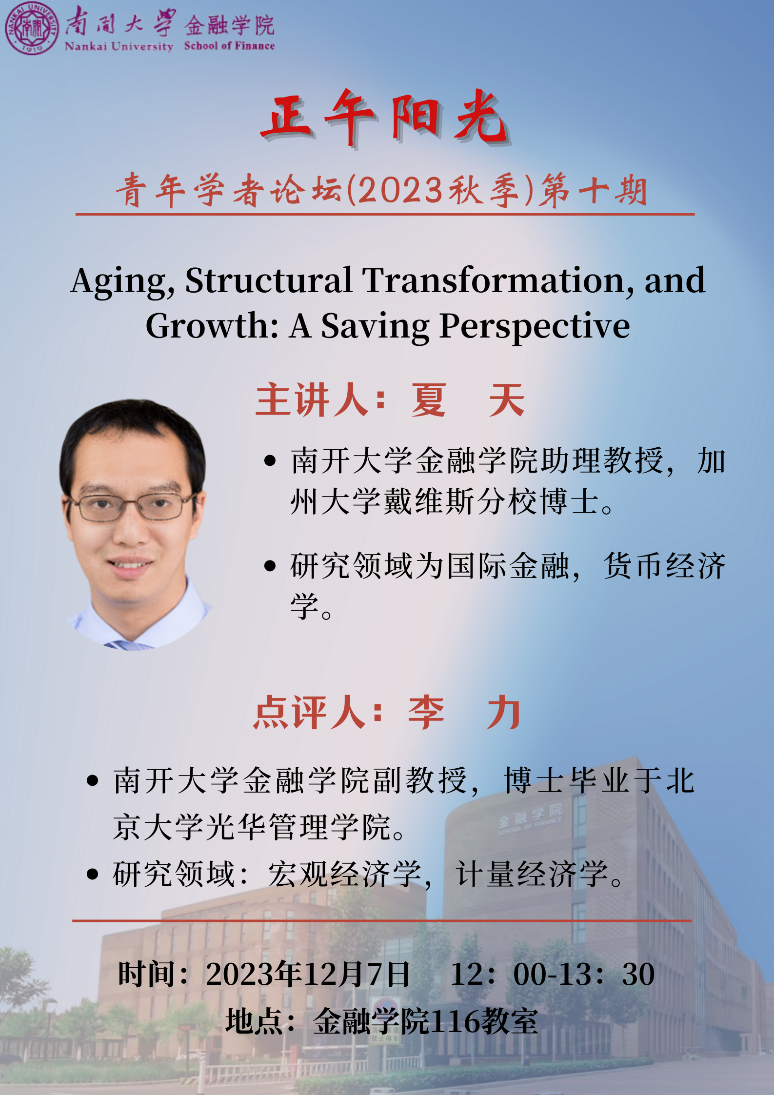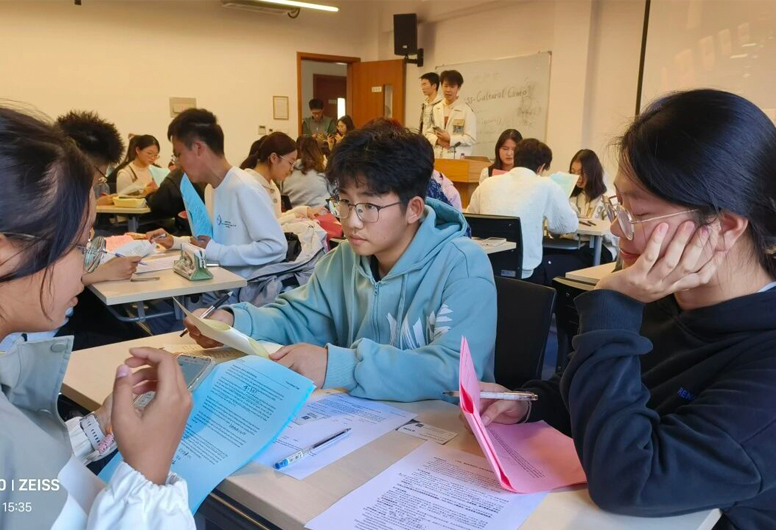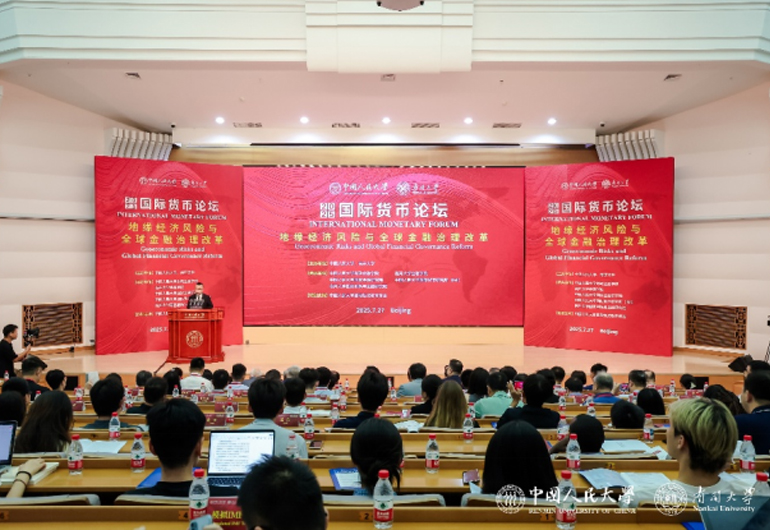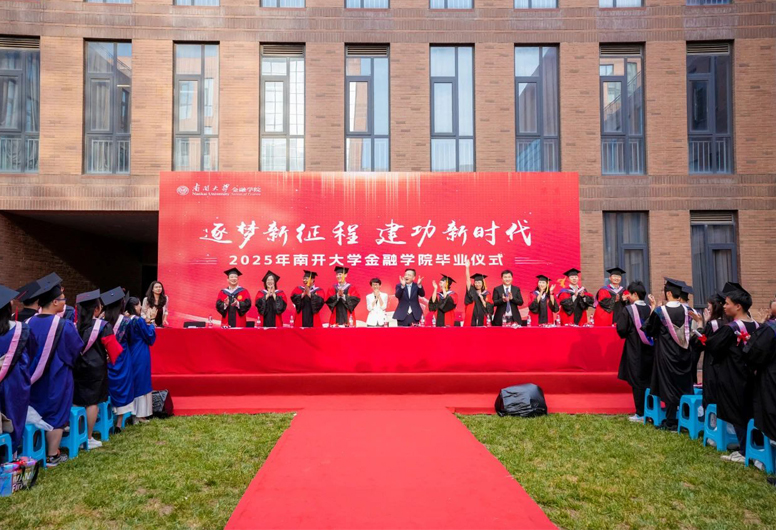Advance Notice: the Tenth Session of Noon Sunshine-Young Scholars Seminar (the Autumn in 2023)
“Noon Sunshine-Young Scholars Seminar” is a regular academic exchange platform held by School of Finance. It aims to offer valuable occasions of communications among scholars in our college, between teachers and students, the domestic and the oversea. In this semester, we keep our original intention, set off for a new voyage. We will devote ourselves to fostering the academic atmosphere in the college, and promoting the academic level for both teachers and students.
The tenth session of “Noon Sunshine-Young Scholars Seminar” for the Autumn Semester in 2023 is arranged as follows:
Lecture topic
Aging, Structural Transformation, and Growth: A Saving Perspective
Keynote Speaker: Xia Tian
Commentator: Li Li
Date
Thursday, December 7th, 2023
Time
12:00-13:00
Lecture Venue
Room 116, School of Finance
Abstract
In this paper, we construct an open economy framework that jointly analyzes population aging, structural transformation, and economic growth. Our model points to a particular economic transmission mechanism, in which population aging-induced saving in physical capital and foreign assets shift the relative demand between tradable and non-tradable goods, generating structural transformation. In the presence of productivity growth externality in the tradable sector, structural transformation caused by aging-induced saving has long-run implications on productivity. Government policies that restrict investment into specific categories of assets can determine the pattern of structural transformation induced by aging-induced saving. We calibrate a life-cycle model that closely represents China and its demographic transition and use the model to evaluate the economic consequences of different assets accumulated from population aging-induced saving driven by alternative financial liberalization policies. We show that internal financial liberalization in China during its population aging can enhance productivity and output, at the cost of lower welfare, while external liberalization does the opposite.









